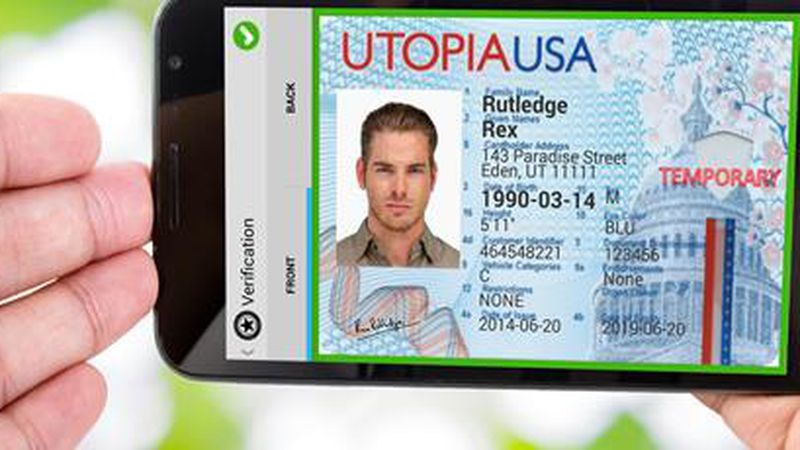
TAMPA — Want to keep your driver’s license handy without lugging around a purse or wallet?
As soon as next year, there could be an app for that.
Just as house and car keys, bank cards, plane tickets and proof of car insurance have evolved from physical objects to digital apps, a pilot program through the Department of Highway Safety and Motor Vehicles will soon determine whether the time has come to store your state-issued driver’s license on your smartphone.
It’s a concept that has gained traction with pilot programs in other states as a way to curb identity theft, card skimmers and even the spread of coronavirus. Louisiana started offering a limited version in 2018, but Florida could be the first in the nation to offer motorists a digital, hands-free driver’s license option for all uses.
The state will launch a pilot program in December.
“As I.D. fraud becomes more frequent and sophisticated, we made it a priority to reinforce ID verification by adding extra software security technologies,” said Tony Lo Brutto, a vice president at cybersecurity firm Thales, selected to launch driver’s license app and associated verification program.
If all goes well, motorists can choose to apply for both a physical driver’s license and an electronic copy that can be downloaded as an app to a smartphone or tablet. The program has already been approved by the American Association of Motor Vehicle Administrators, the nation’s umbrella agency for motor vehicle departments, and it meets all personal identification requirements of the International Organization for Standardization, Thales said.
That means the mobile app could be used as identification domestically and overseas.
It will carry the same information as the traditional cards, including driving privileges and restrictions. But with the information now cloud-based, police officers, bartenders and others can more easily determine authenticity. What’s more, users can be selective in how much personal information they turn over.
“Let’s say you’re 21 and have to show I.D. before you walk into a bar,” said Hillsborough County Tax Collector Doug Belden. “With this technology, you can pull out your phone, select what kind of verification you need and show it to the man at the door without your phone ever leaving your hand.”
Users could limit the information provided to just a photo and if they’re over 21 years old, Belden said, adding that users don’t have to show exact date of birth, where they live, or even their full name. That information can be kept private.
State offices like Belden’s already maintain massive databases of personal information, accessible by authorities, with every driver’s license issued, he said. The wallet-sized cards are simply a pared-down version. But there’s greater security in a digital version, with information kept behind the passcode, pin number or fingerprint-triggered security locks built into most phones and tablets.
If it is lost or stolen, the Thales app enables users to wipe their personal information. In addition, renewals and change of address would be a snap. The no-contact app also means less chance of contacting germs like the coronavirus.
How much it would cost is still being worked out. The price of a standard Class E license in Florida now is $48, first time or renewal. There’s a $35 fee to replace a lost or stolen card. Louisiana charges an additional $5.99 for its app, accepted only for traffic stops inside the state’s borders.
“I’m excited for this innovation project that will make the state of Florida a national leader in offering secure and trusted mobile identification,” Terry Rhodes, executive director of highway safety and motor vehicles, said in a statement to the Tampa Bay Times.
“We have made a sustained commitment to the modernization of nearly every aspect of what our department does and how customers access our services, and Thales will be a great partner as Florida now steps into the future of mobile identification.”
Thales is also working with 11 other states and five Canadian provinces on mobile driver’s license and personal identification programs, the company said. The company launched the first successful pilot program in 2016 in partnership from the U.S. National Institute of Standards and Technology.





























